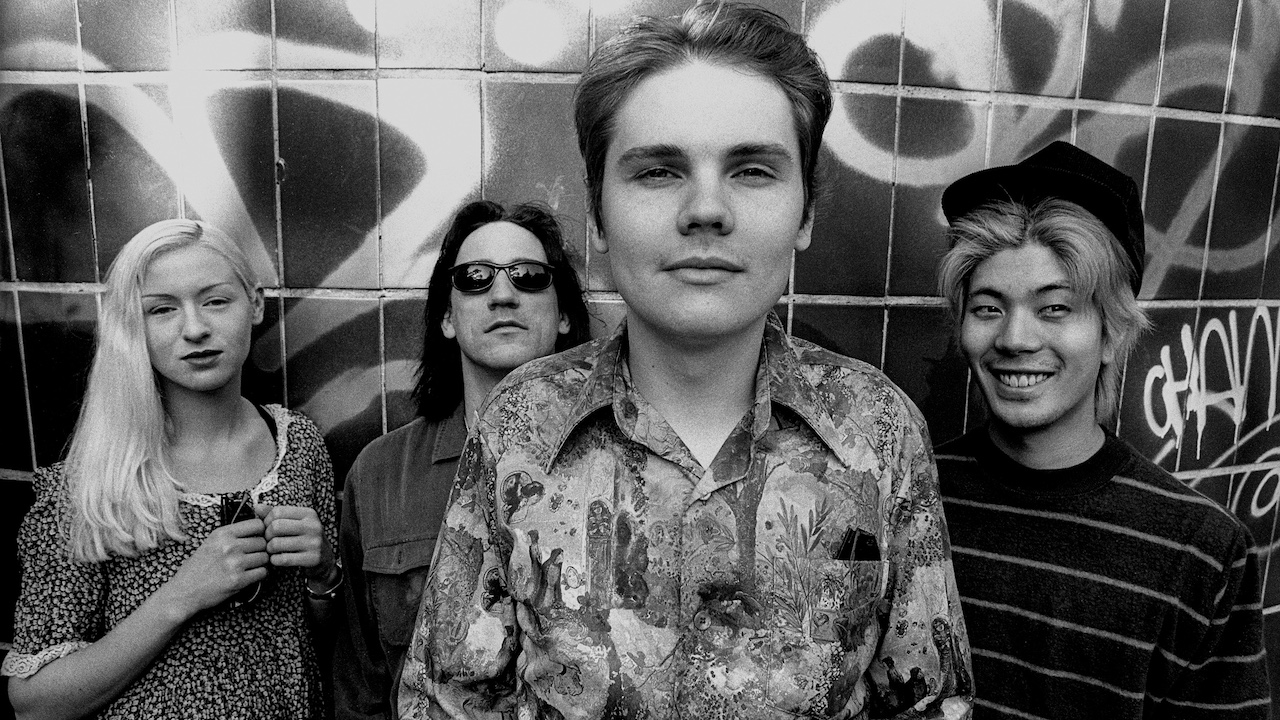11 sublimely mellow Smashing Pumpkins cuts
Despite all their rage, sometimes Billy Corgan & co. made some of the most perfectly tranquil music of the 90s

Select the newsletters you’d like to receive. Then, add your email to sign up.
You are now subscribed
Your newsletter sign-up was successful
Want to add more newsletters?

Every Friday
Louder
Louder’s weekly newsletter is jam-packed with the team’s personal highlights from the last seven days, including features, breaking news, reviews and tons of juicy exclusives from the world of alternative music.

Every Friday
Classic Rock
The Classic Rock newsletter is an essential read for the discerning rock fan. Every week we bring you the news, reviews and the very best features and interviews from our extensive archive. Written by rock fans for rock fans.

Every Friday
Metal Hammer
For the last four decades Metal Hammer has been the world’s greatest metal magazine. Created by metalheads for metalheads, ‘Hammer takes you behind the scenes, closer to the action, and nearer to the bands that you love the most.

Every Friday
Prog
The Prog newsletter brings you the very best of Prog Magazine and our website, every Friday. We'll deliver you the very latest news from the Prog universe, informative features and archive material from Prog’s impressive vault.
Prime 90s era Smashing Pumpkins were one of the fiercest and most thrilling rock bands on the planet, a perfect alchemy of hard-hitting riffs, avalanching drums and explosive choruses. But what made Billy Corgan & co. one of the most dynamic bands of the decade was that they perfectly balanced their rock feistiness with a sublime selection of more mellow and ambient cuts. Yes, they also had a selection of songs in their arsenal that were amped-up mid-tempo classics (the majestic Mayonaise being the best of that bunch) but sometimes they were at their most resplendent when they didn’t rock at all – perhaps Billy Corgan and James Iha’s arsenal of volcanic distortion pedals needed a little rest sometimes.
Those songs make a fascinating alternative song history to the Pumpkins catalogue. A scroll through the tracklisting to their 2001 Best Of Rotten Apples or any of the picks that feature on streaming platform playlists would have you thinking any diversion into softer material was an aberration. The truth is there’s a whole other band there waiting to be discovered. Anyone who saw the band at one of the half and half Mellon Collie… shows in 1996, where they split the gig into an acoustic section and a rocky section, will testify to what an affecting band they could be when stripping things back, making it all the more galling that somehow they never did an MTV Unplugged session.
We’ll have to make our own setlist instead - here’s the best of the more subdued cuts they made during their original 90s run, the only rule for inclusion being – No Distortion Pedals Allowed...

Obscured
Shall we begin with this hazy, stoner campfire cut that featured on the Pumpkins superlative B-side collection Pisces Iscariot? It’s as good a place as any to begin, if only because it highlights that the more placid side of the Pumpkins’ sound was in place from the beginning. Obscured was originally recorded in 1991 but the band sat on it for two years, a re-done version of the song eventually surfacing as a B-side to the UK release of Today.
Daydream
In the liner notes for the reissue of their debut Gish, Corgan described the acoustic melancholia of Daydream as the band’s “first encounter with the other way”, suggesting this was the track that opened up an alternate sonic pathway for the quartet. It’s certainly a song apart on the otherwise raucous Gish, with bassist D’Arcy Wretsky’s fragile vocals (the only time she sung the lead) giving Gish’s final track its emotional anchor.
Sweet Sweet/Luna
Cheating, perhaps, to have these as two but they really are the Siamese twins of Siamese Dream. After all of its bombastic, psychedelic heaviness, their masterpiece second record ends in a haven of clean guitars and hushed melodicism.
To Sheila
The middling, muddled Adore had a sort of reverse Pumpkins problem that there weren’t enough rock songs to let the more calming tracks stand out. As a result, it all ended up sounding a bit one-paced. And it was way too long. But there were some gems in there, the stark acoustic opener To Sheila being one. Corgan has never sounded so vulnerable.
The latest news, features and interviews direct to your inbox, from the global home of alternative music.
In The Arms Of Sleep
This soothing cut from Mellon Collie… is a different sort of stripped-down song, hushed and tightly wrapped, nestled snugly between Thirty-Three and 1979. Part of the genius of Mellon Collie, incidentally, comes in its tracklisting, a record that was about constantly captivating gear-changes rather than filling one disc with the heavy tracks and another with the more acoustic moments.
Cupid De Locke
Similarly, how to explain this dreamy, breezy song is on the same album as riffed-up ice demons Where Boys Fear To Tread and Tales Of A Scorched Earth? There’s a lightness of touch on Cupid De Locke and its hypnotic, looped guitar lick, which really came to the fore when they played it live.
Believe
James Iha apparently had the hump that not enough of his songs made it onto Mellon Collie... – part of the reason, perhaps, why he went off and made the Americana-ish solo debut Let It Come Down in 1998. Believe, which featured as a B-side to 1979, backed up his point, a wistful acoustic ballad with a gently euphoric chorus at its centre.
Once Upon A Time
Another standout from the mostly standout-free Adore. The Pumpkins couldn’t help but beef up Once Upon A Time when they played it live, perhaps worried their brawny live approach might break its original iteration but the lightly lolloping folk bounce of its recorded version was the perfect delivery for a contemplative song about grief.
Thirty-Three
One of the most curious singles choices of the band’s career, Thirty-Three felt a bit too willowy and drifting in my teenage brain. That’s because, of course, teenage brains are stupid. It’s actually a perfectly-pitched, and slightly weird, acoustic track, like a country song from another planet, and lyrically just as pining for teenage years gone by as 1979.
With Every Light
The sole entry from Machina/The Gods Of Machine on this list – that record does not have many pretty moments. And why would it? The Pumpkins were nearing a bitter dissolution as they made it, the reason, you imagine, so much of it sounds so uneasy and awkward. But not this, a lush orchestral pitstop that contains one of Corgan’s warmest vocals.
Farewell & Goodnight
Perhaps there’s one too many Mellon Collie… selections in here, especially when I’d planned to include Pisces Iscariot’s raw opener Soothe but changed my mind, but this is the perfect way to see out this list. In fact, every Pumpkins record should end with this, a swaying little lullaby where each band member gets to sing a few lines. How lovely is that? I mean, how many Pumpkins songs can you name where you get to use the line “How lovely is that?”.
Niall Doherty is a writer and editor whose work can be found in Classic Rock, The Guardian, Music Week, FourFourTwo, Champions Journal, on Apple Music and more. Formerly the Deputy Editor of Q magazine, he co-runs the music Substack letter The New Cue with fellow former Q colleague Ted Kessler. He is also Reviews Editor at Record Collector. Over the years, he's interviewed some of the world's biggest stars, including Elton John, Coldplay, Radiohead, Liam and Noel Gallagher, Florence + The Machine, Arctic Monkeys, Muse, Pearl Jam, Depeche Mode, Robert Plant and more.
You must confirm your public display name before commenting
Please logout and then login again, you will then be prompted to enter your display name.












